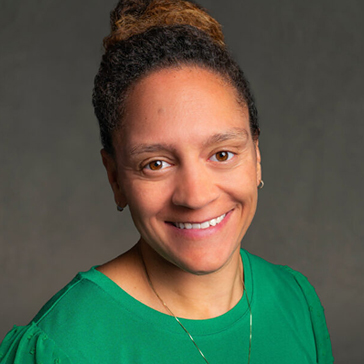This piece originally appeared in The 74.
“I’m just not a math person.”
We’ve all heard that phrase from friends, family, or colleagues. Though usually presented as a harmless personality quirk, it conceals math anxiety, insecurity, and potentially a belief that math isn’t as valuable as other areas of study. This has real implications: Research shows that merely expressing math anxiety can damage math performance.
Yet we rarely hear people say they’re not a “reading person.” Why is reading viewed differently than math in this way? One reason is that most people don’t know how to support math skill development in young children. This affects low-income children and children of color the most. Fewer than 10 percent of children from low-income families can count to 20 in preschool — a skill that correlates strongly to math achievement in first grade. This contributes to significant racial and socioeconomic math gaps before students enter kindergarten.
Family math can help solve this problem by addressing early math gaps before they form. Family math refers to activities that happen outside the classroom and within the context of family relationships, the community, and everyday life that support young children and families to strengthen their math awareness, understanding, and confidence. If practicing math with young children were as common as, say, reading a bedtime story, it could help close achievement and opportunity gaps — and promote equity.
There have been scattered attempts to move toward that vision, but no cohesive effort. That’s why, over the past two years, the Overdeck Family Foundation, the Heising-Simons Foundation, the Bill & Melinda Gates Foundation, the Robert R. McCormick Foundation, the CME Group Foundation, the Skeebo Foundation, and Education First, with a diverse set of partners, have been working with families, community organizers, researchers, and philanthropists to craft a road map to advance family math. Our goal is to ensure that all children and families, regardless of background, have access to the culturally responsive math opportunities needed to close achievement gaps.
From the beginning, we knew that this effort would not succeed without an approach that systematically and meaningfully engaged families. Besides making information and resources readily accessible, we knew we needed to directly address the cultural and structural barriers that prevent families from engaging in math activities. After all, how can family math be successful without authentic buy-in from families?
To do this, we convened a group of 80 diverse stakeholders, ranging from parents to national funders to academic researchers, to create outcomes, goals, and strategies for this road map. We split into groups to address each of five key aspects of the work:
● Research. Family math is a nascent field without clearly defined best practices. It is necessary to develop a clear, culturally responsive research agenda that allows us to determine which components of family math work for whom and why. We also need better ways to measure outcomes, including family engagement, attitudes toward math, and math learning outcomes.
● Practice. In order to implement family math equitably and effectively, there must be strong tools and supports to use in homes and the community. This means creating a network of practitioners to work with families, researchers, and policy experts to develop resources that are relevant to — and in service of — all families’ math support needs.
● Policy. Broad implementation of family math requires supporting policy structures, including increased financial investment and intentional integration of family math with other early learning efforts. To support this, we need to build parent leadership at local and national levels to advocate for family math.
● Advocacy. We need to build awareness and support for family math by using families and teachers as spokespeople. We will also attempt to tap into existing programs and campaigns to accelerate this process.
● Philanthropy. The philanthropic community will play a crucial role in helping to ensure that these efforts have the resources to be successful and sustainable. Launching a coordinating body, supported by philanthropists, to keep the family math field organized is a critical component to this work.
Over the next three years, through implementation of this plan, we will support existing efforts to promote family math and seek out new ones. This is a growing movement, and with collective action, we can move further, faster.
We have a long way to go. But with families and communities at the center of the work, we can expand family math so that all children — regardless of race or family background — are set up for success on the first day of kindergarten. We want all families and children to proudly say they are “math people” — because they are.
Kelly James is a partner at Education First Consulting. Brian Carter is a program officer at the Overdeck Family Foundation. Kimberly Brenneman is a program officer at the Heising-Simons Foundation. LiLi Liu is a senior program officer at the Bill & Melinda Gates Foundation. Kassie Davis is executive director of the CME Group Foundation. Cornelia Grumman is education director of the Robert R. McCormick Foundation. Victoria Manning is executive director of the Skeebo Foundation.

